As an Amazon Associate I earn from qualifying purchases.
As gardeners, we all want to give our plants the best possible chance to grow. Soil on its own doesn’t provide all of the nutrients plants need. As veggies, fruits, and flowers continue to sprout, they also take nutrients out of the soil. That’s why adding vegan fertilizers to your soil is important for helping your garden thrive.
Growing your own vegetables and fruit is a truly satisfying hobby. Over the past year, I’ve learned a lot about gardening, so I wanted to share tips and strategies that have helped me. In this article, I’ll be discussing vegan fertilizers I’ve used in my garden.
What Do Vegans Use as Fertilizer?
Many fertilizers use animal products like blood meal, fish meal, or feather meal, which is so frustrating. Luckily, I did some research and found several options that use zero animal products. These fertilizers are made out of vegan ingredients and are usually organic. Organic means that it has ingredients that come naturally from the environment.
What Does NPK Stand for?
Since soil doesn’t have enough nutrients to feed your plants, you’ll want to check out a fertilizer’s NPK ratio. It helps add nutrients back into the soil and gives your plants growing power.
NPK stands for three macronutrients and their atomic symbols. NPK means nitrogen (N), phosphorus (P), and potassium (K). Vegan fertilizers have an NPK ratio that tells you how much nitrogen, phosphorus, and potassium it contains.
You can use a specific NPK ratio depending on what kind of plants you want to grow. Roses need a different ratio than strawberries, for example. NPK can also help your soil if it’s deficient in a certain nutrient. I recommend testing your soil to find out what fertilizer ratio you need to add.
Vegan Fertilizers I Tried
Over the past year, I tried out several vegan fertilizers. I found some at my local nursery, but all of them can be found online. Here are the ones I used in my own garden.
1. Down to Earth Vegan Mix
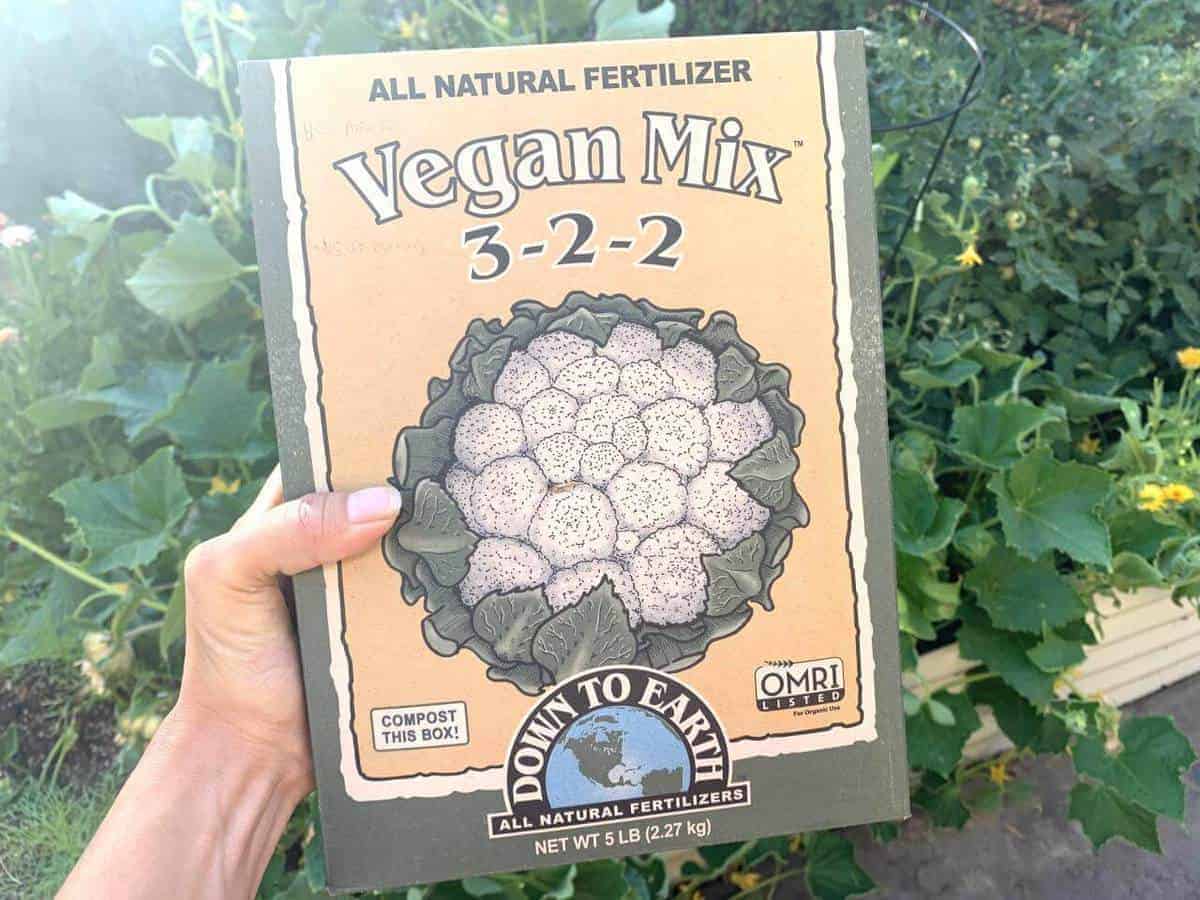
Down to Earth Vegan Mix is one of the most common vegan fertilizers. I found it at my local nursery, and it cost $13 for a five pound bag. You can also purchase it on Amazon for $19.50. To use it, put one to two tablespoons of fertilizer into the hole when you’re transplanting your seedlings. Down to Earth Vegan Mix has an NPK ratio of 3-2-2. Here’s their website.
2. Wildroot Organic Mighty Mycorrhizae
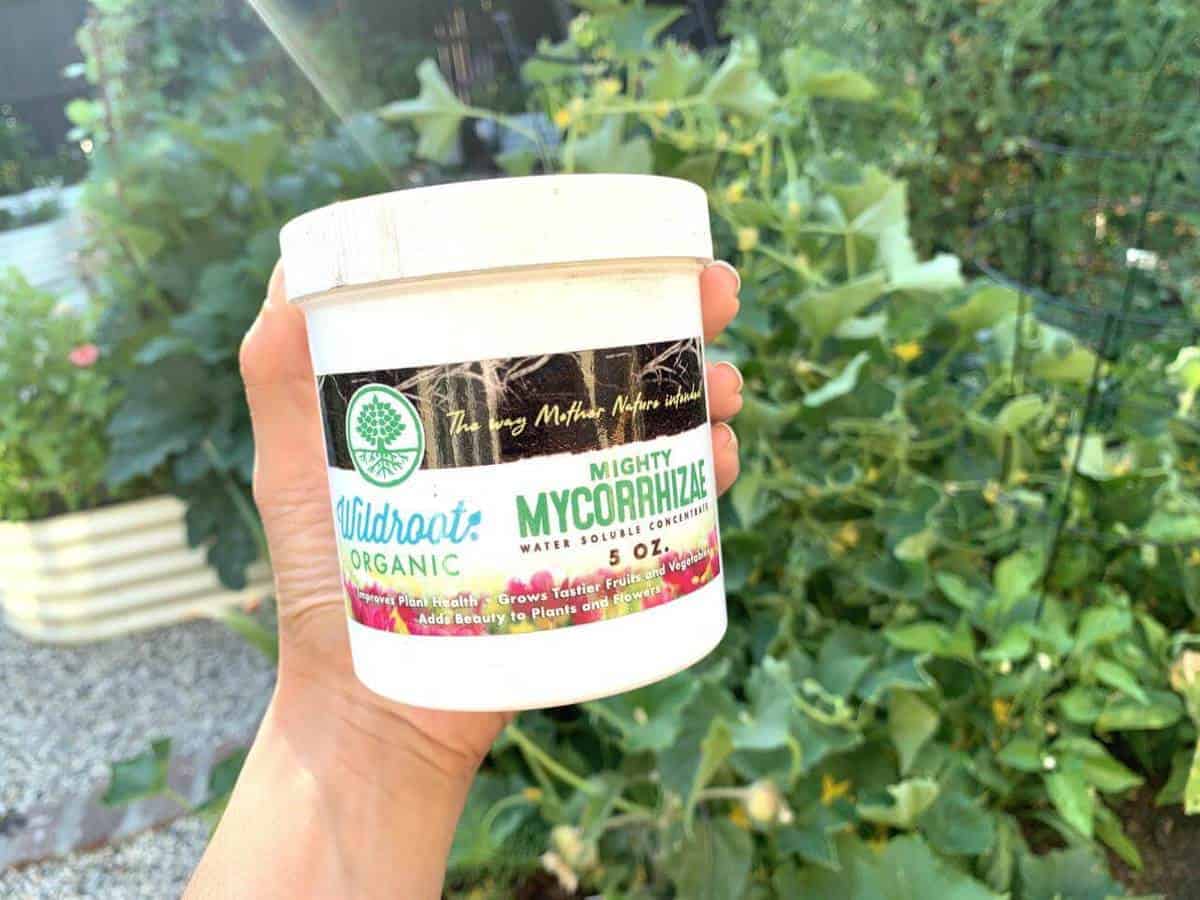
I love using Wildroot Organic Might Mycorrhizae and add it to my garden all the time. It adds beneficial mycorrhizae, which helps plants become healthy and strong. Mycorrhizae are fungi which make plants’ immune systems stronger. This water-soluble vegan concentrate also works well with a variety of plants, so you can use it across your garden and yard.
It costs $15 for a one ounce packet on their website or Amazon, but it goes a long way. A tiny scoop gets added into one gallon of water, and overall the packet makes 50 gallons. This vegan concentrate doesn’t have an NPK since it uses mycorrhizae, but it works wonders. Here’s their website.
3. Marphyl Marine Phytoplankton
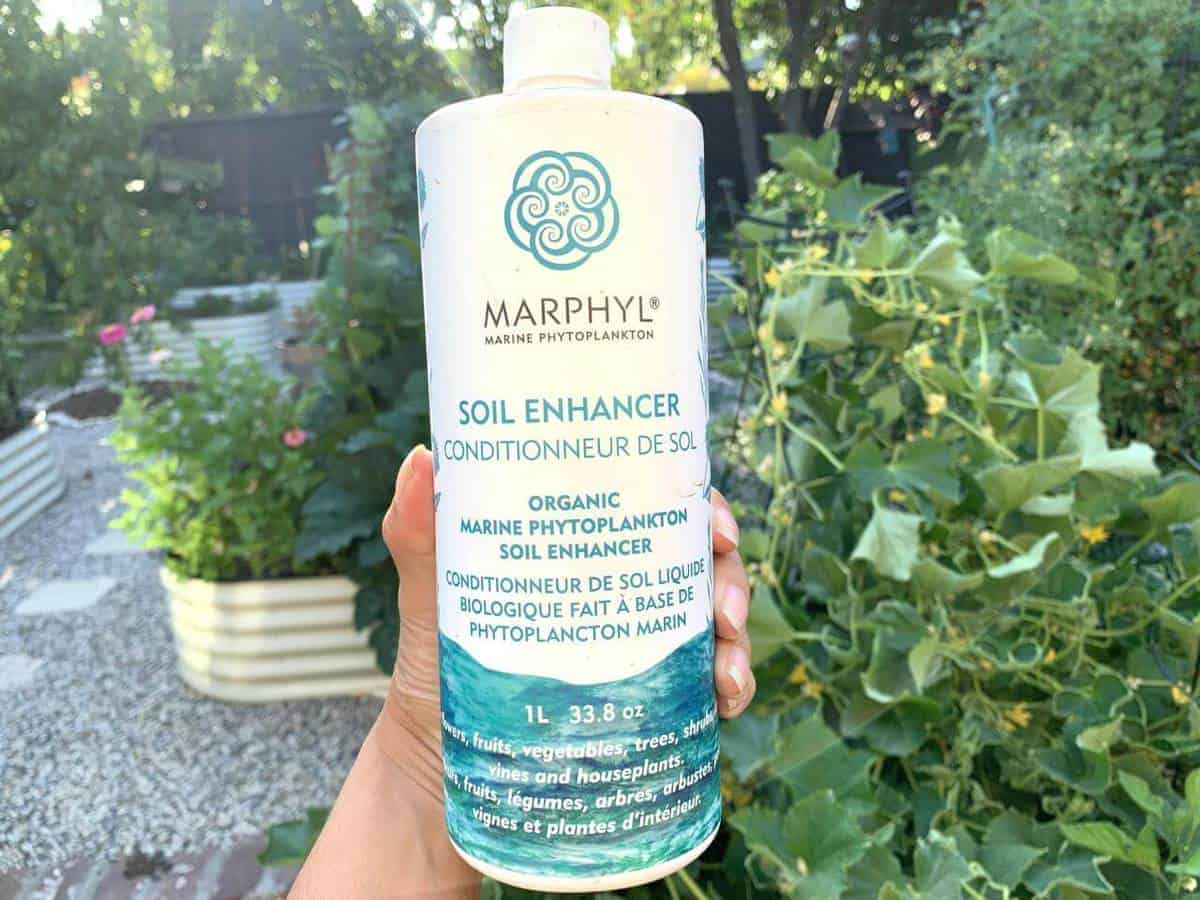
Marphyl Marine Phytoplankton is an organic soil enhancer that works especially well in vegetable gardens. It costs $22 for a one liter bottle on their website, and you can also find it on Amazon for a bit less. To use this water-soluble soil enhancer, mix one portion with 20 portions of water. It doesn’t list an NPK ratio, but the company states that it’s high in nitrogen, phosphorus, and potassium. Here’s their website.
4. Incredible Bulk Organic Bloom Booster
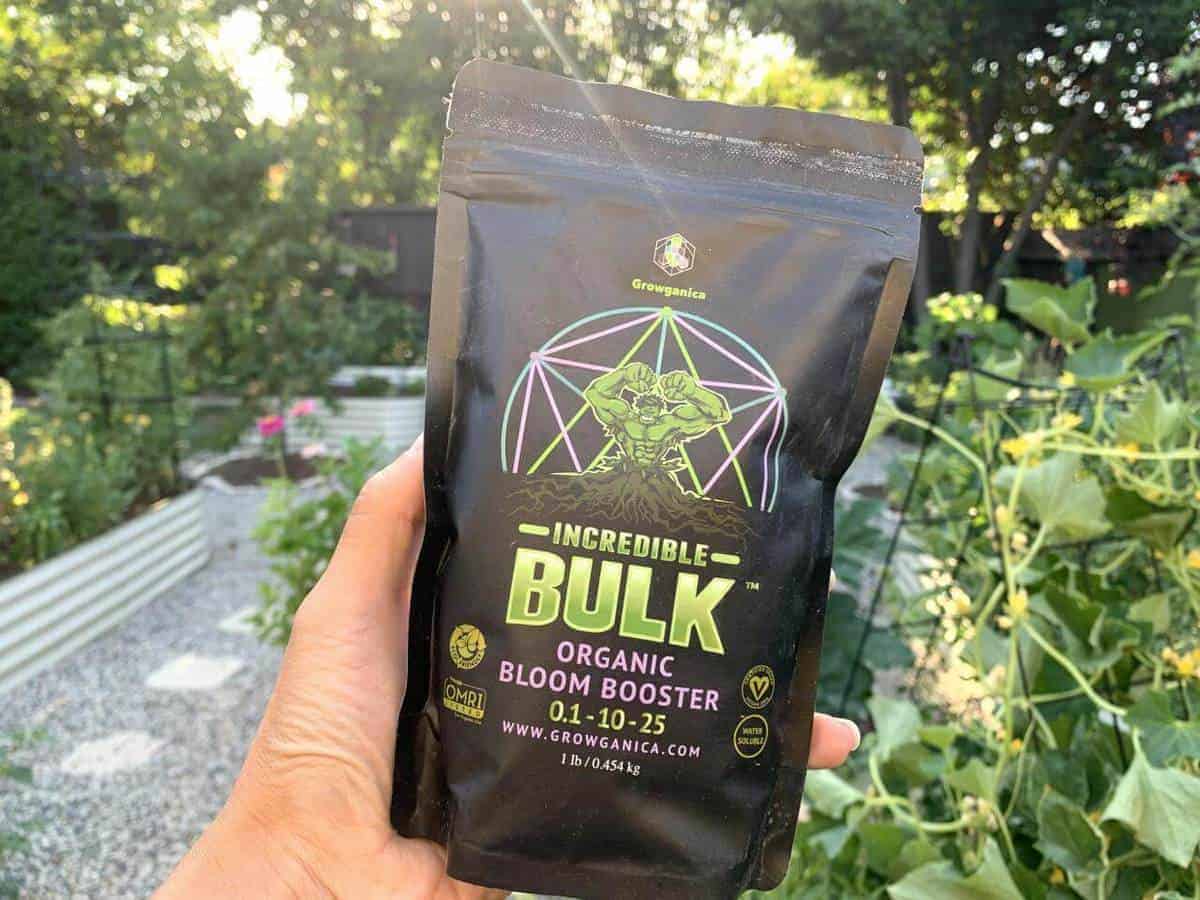
Incredible Bulk Organic Bloom Buster is great because it won’t burn your plants if you overfeed them. The certified organic symbol is printed on the package, which is useful if you’re dedicated to creating an organic garden like I am. It’s made of soluble rock phosphate, sulfate of potash, and kelp. I like using it when I’m transplanting. The NPK is 0.1-10-25. Here’s their website.
5. Walt’s Organic Garden Blend
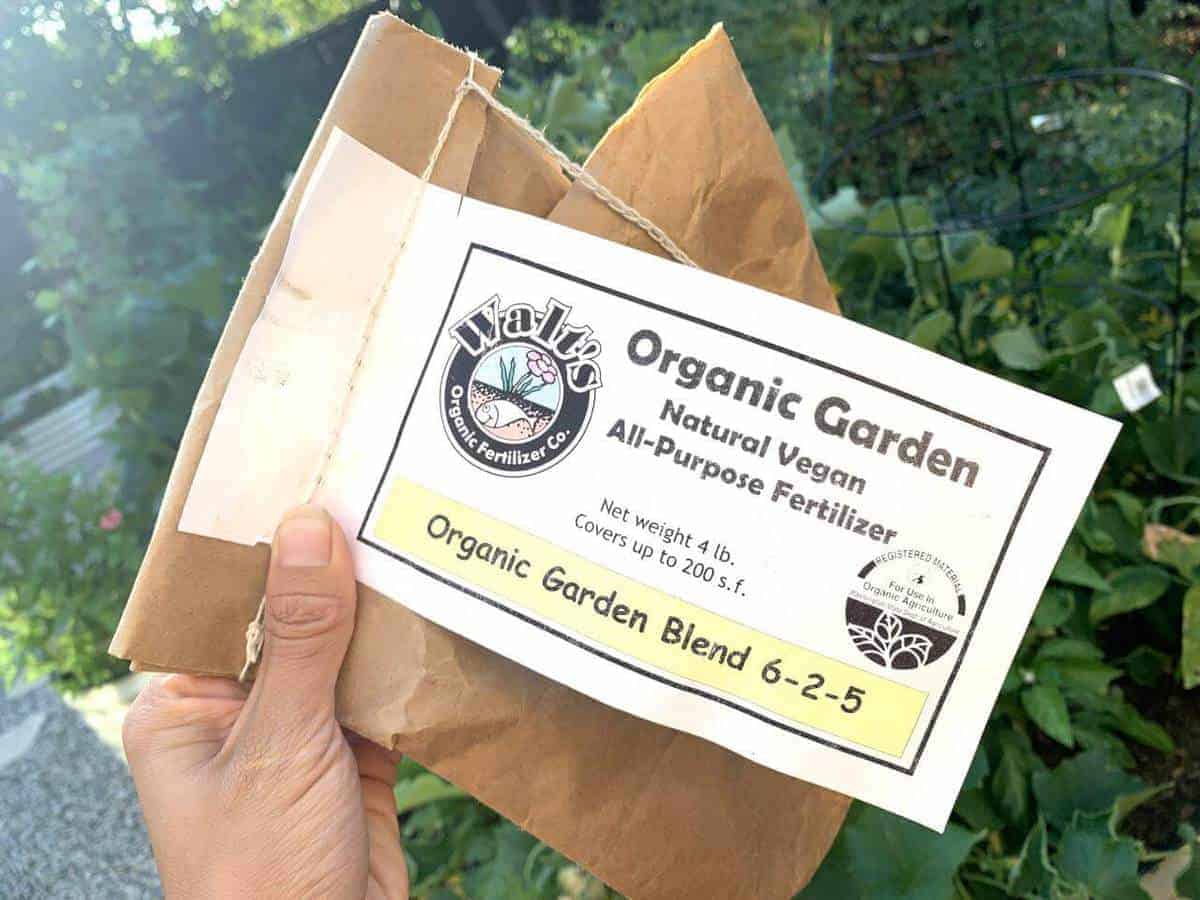
Walt’s Organic Garden Blend is a vegan and all-purpose fertilizer that is registered and approved for organic planting. It’s a blend of soybean meal, seaweed, and minerals. This one is a bit more expensive at $14.95 for a four pound bag. Shipping is $8, unless you live in Seattle and can pick it up at their store. To use it, work it into the soil or sprinkle it on top of the soil. The NPK is 6-2-5. Here’s their website.
6. Yum Yum Mix
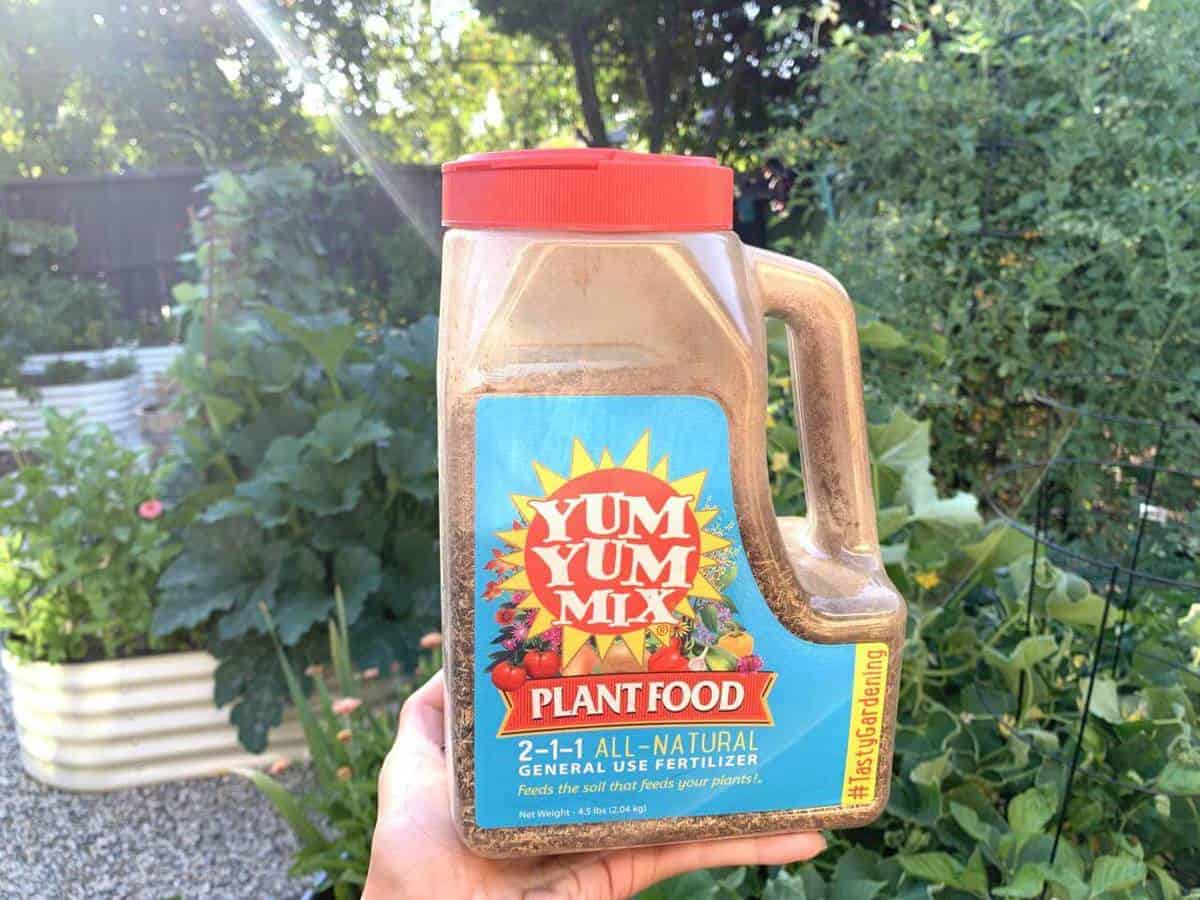
Yum Yum Mix is one of the easiest to apply. You can buy it on their website at $20 for a 4.5 pound jug. It comes with a perforated lid, so I just sprinkle the plant-based fertilizer onto the soil. I love that it’s super easy to use! It’s made out of ingredients like alfalfa meal, cottonseed meal, kelp meal, and soft rock phosphate. The NPK for the Yum Yum Mix is 2-1-1. Here’s their website.
7. Sweet Garden Organics VeganVeggie
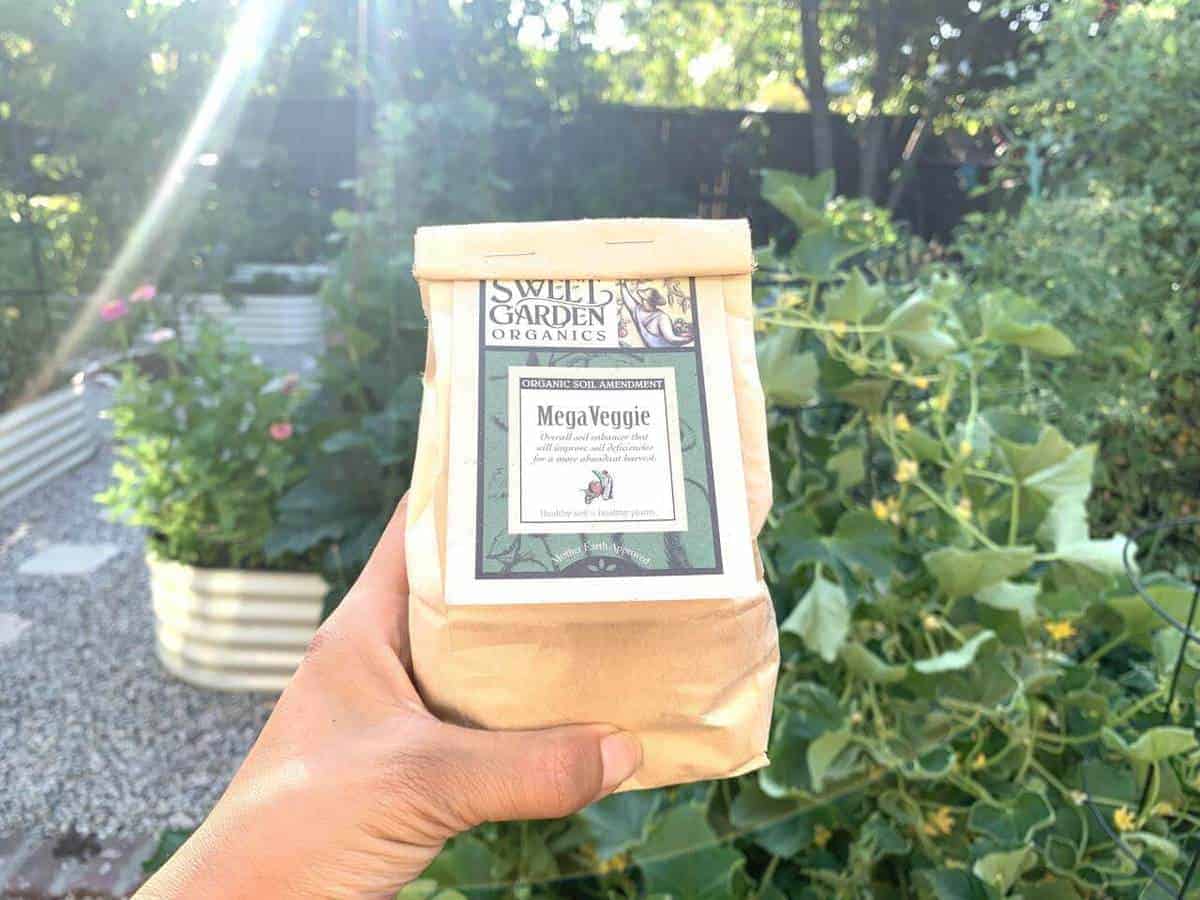
Sweet Garden Organics VeganVeggie is my least favorite because it’s lacking in information. The cost is about $20 for a one pound bag, and there’s no information about NPK or ingredients. The packaging only has directions for using this vegan vegetable fertilizer. Add one to three cups for every 100 square feet of soil. Here’s their website.
Honorable Mention: E.B. Stone Naturals Cottonseed Meal
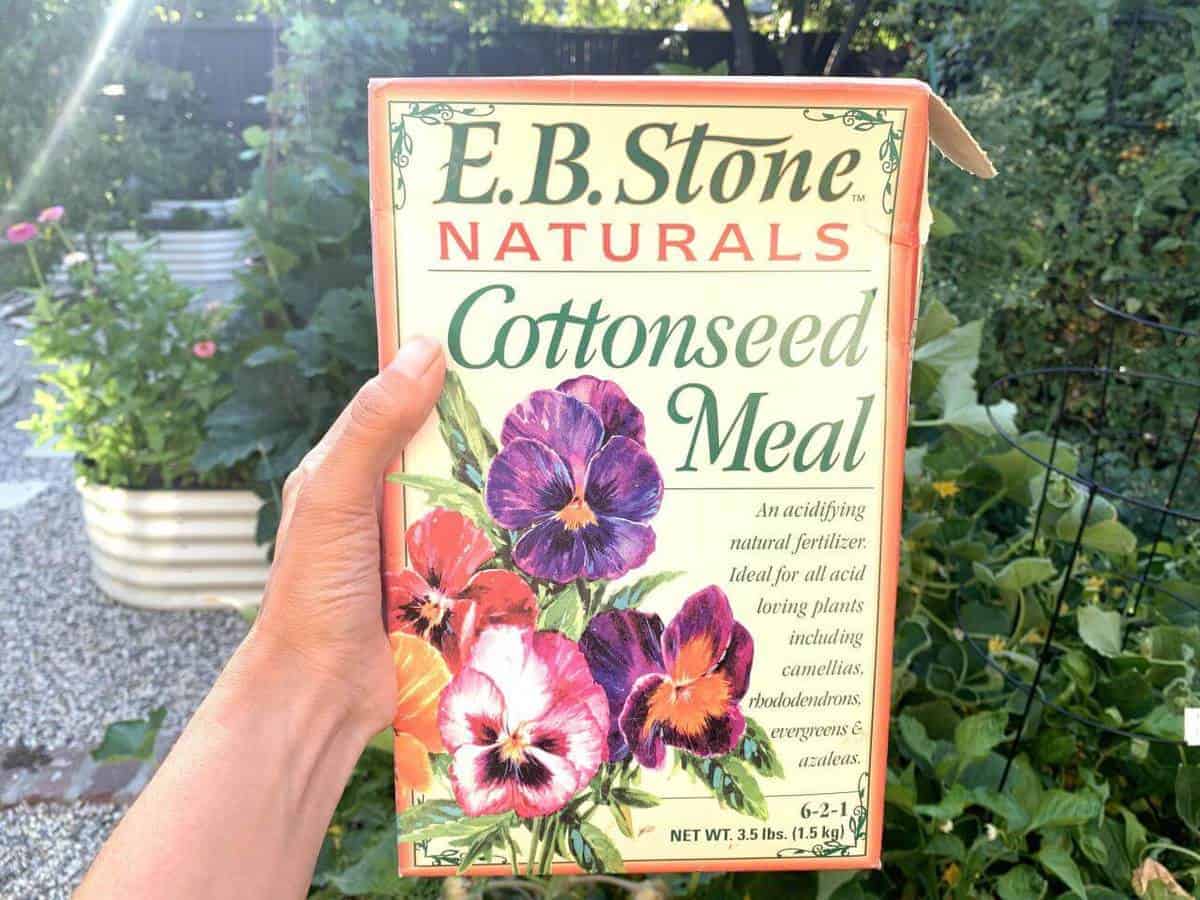
E.B. Stone Naturals Cottonseed Meal saved my plants this year! I had a serious issue with lack of nitrogen in my soil. I didn’t get my soil tested when I first purchased it, and it ended up being very deficient in nitrogen. My plants were stunted and their leaves were yellowing. When I asked the nursery for tips, they wanted to put a lot of animal products into my soil. That of course was not an option for me, so I looked for vegan fertilizers.
I found the vegan product with the highest level of nitrogen available at my nursery. E.B. Stone Naturals has an NKP of 6-2-1. It’s been the real MVP in my garden, boosting my husky cherry red tomatoes, lemon cucumbers, and several pepper plants. Here’s their website.
Have you tried any of these vegan fertilizers? I’d love to hear from you! Share your gardening experience in the comments below.

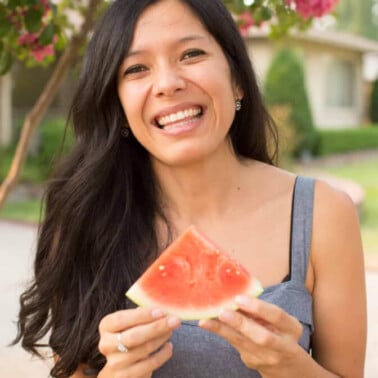

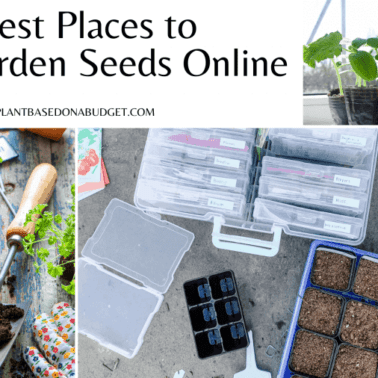
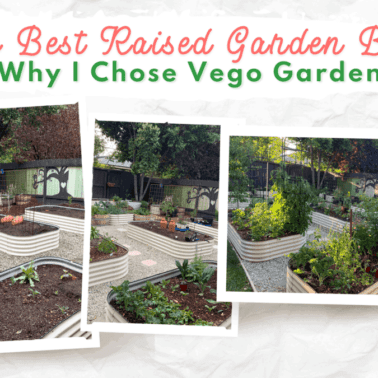
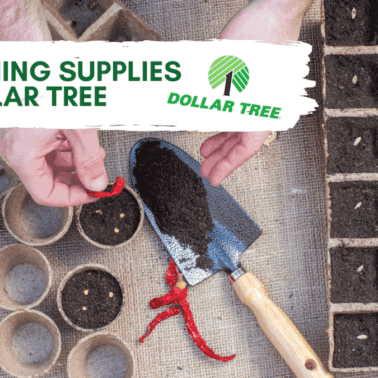







Hi Toni,
I have been coming back to this blog post for a couple years now. It’s still one of the best I’ve found on the Internet. Purchased the Incredible Bulk and Wildroot Organic Mighty Mycorrhizae. Both small businesses provide great support too with the latter remembering you and sharing many kind words when I mentioned your website.
This year I have a couple pickling cucumber seedlings in a grow tower on my porch. I’m thinking Marphyl might be a good option to add in for the early growth stages and then maybe Incredible Bulk once the plant starts flowering?
I also bought hanging baskets full of cherry tomatoes and one full of strawberries. Both are flowering and fruiting so I thought Incredible Bulk on these, but not sure if this will meet all the needs for berries and tomatoes. Any advice would be greatly appreciated! Thanks for all the great info!
Your garden sounds amazing and so fruitful! It sounds like you’re crushing it with feeding your soil/plants!
This is so helpful! Thanks for rounding up these resources.
So glad you found this blog useful 🙂 Toni has put a ton of time into her garden!
which would you recommend for an indoor monstera growing in water?
Hi Paula, I’ve never personally tried it on Monstera, but Marphyl works wonders on my plants. You’ll have to let me know how it goes! https://amzn.to/3soCvaC
Which one wound be good for indoor hydroponics garden?
Vegan water soluble fertilizer
Ty
Hi! I love this list of vegan fertilizers! I have dwarf citrus trees and the company I bought them from recommends a slow release 3:1:5 or 8:1:5 ratio for fertilizer. I can’t find this ratio in a vegan fertilizer. I’ve been researching citrus tree fertilizers and it seems the recommendation is that they need special fertilizer. What would you recommend?
What vegan fertilizer do you recommend for citrus trees, lemon specifically?
This is super helpful! Can you share what soil you are using that is also vegan & organic?
Hi Madeline,
I’m so glad you found the info helpful! I’m currently using soil from a local company that offers a vegan option. It’s always a good idea to check with smaller, regional providers—they often have great blends and are happy to share exactly what’s in them. Thanks for your question!
This was such a helpful article, thanks for writing it! I don’t normally use fertilizers because it is so hard to find one that works but doesn’t have a bunch of gross stuff in it. I cross referenced your list with a database for Washington state where companies can register their product by reporting the amount of heavy metals it puts into the soil and found my top choices to try this year. Thanks!
So glad you enjoyed the article! I learned so much about the different vegan fertilizers available. You’ll have to let us know about your experience with the one you choose to use 🙂